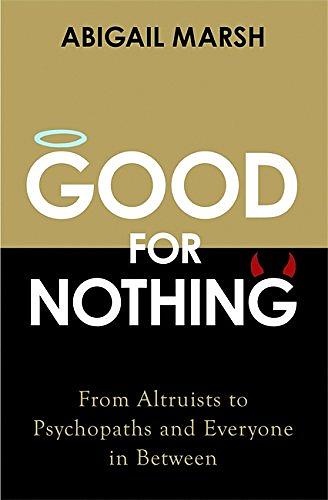內容簡介
內容簡介 ☉超過170萬人次點閱的TED演說☉利用功能性磁振造影等尖端科技對利他行為做了突破性的研究☉幫助我們提升善良的能力,使人類社會朝向更美善的目標前進「Good for Nothing讀來就像一本驚悚小說。艾比蓋兒.馬許帶領我們經歷突破性的研究,解釋人類最基本的兩個特質:極度自私與絕對利他。一頁翻過一頁,她非常具有說服力地告訴我們,有沒有能力感知與認同恐懼,是使我們成為精神病患或是樂意捐腎給陌生人的關鍵原因。這是我近年來讀過心智最為開闊的書籍之一。」-《快樂學》作者馬修.李卡德(Matthieu Ricard)「讓艾比蓋兒.馬許引導你經歷一趟迷人的大腦之旅。生動的文字加上了不起的科學掌控力,她告訴我們,人類對恐懼的敏感度,可以成為邪惡的武器,也可以是行善的動力。」- 華頓商學院教授、《紐約時報》暢銷書作者授亞當.格蘭特(Adam Grant)「推薦這本精彩的書給想要更理解潛在罪犯心理的大眾心理學讀者以及犯罪實錄的書迷們。」-《書單》Booklist為什麼有些人可以不顧性命、不求回報地拯救他人?為什麼有些人做出傷天害理的事情,只為了一己私利?天使與魔鬼的界線在何處?這個一直困擾著哲學家與科學家的問題,終於在這本書中有了初步的解答。本書探索人類關懷他人的能力,作者利用臨床與轉譯醫學以及大腦影像的尖端研究,探討人類同理心、利他行為以及好鬥的本質,使我們更了解人類社會行為的基礎。作者簡介:艾比蓋兒.馬許是喬治城大學心理系副教授,哈佛大學社會心理學博士,在美國國家心理衛生研究院完成認知神經科學的博士後研究。過去十年來,從事人類行為與大腦的研究,目標在了解人類如何理解彼此的情感,為什麼我們關心彼此幸不幸福,啟動我們內心善與惡的原因是什麼,從暴力侵略到拯救生命的利他主義,都是馬許的研究主題。If humans are fundamentally good, why do we engage in acts of great cruelty? If we are evil, why do we sometimes help others at a cost to ourselves?Whether humans are good or evil is a question that has plagued philosophers and scientists for as long as there have been philosophers and scientists.Many argue that we are fundamentally selfish, and only the rules and laws of our societies and our own relentless efforts of will can save us from ourselves. But is this really true?Abigail Marsh is a social neuroscientist who has closely studied the brains of both the worst and the best among us-from children with psychopathic traits whose families live in fear of them, to adult altruists who have given their own kidneys to strangers. Her groundbreaking findings suggest a possibility that is more optimistic than the dominant view. Humans are not good or evil, but are equally (and fundamentally) capable of good and evil.In Good for Nothing Marsh explores the human capacity for caring, drawing on cutting edge research findings from clinical, translational and brain imaging investigations on the nature of empathy, altruism, and aggression and brings us closer to understanding the basis of humans' social nature.
